Collection Highlights
A Piece of the 1968 Attack on U.S. Embassy, Saigon
This fragment of the original granite wall surrounding the U.S. embassy compound in Saigon bears the evidence of the January 31, 1968, Tet Offensive attack.
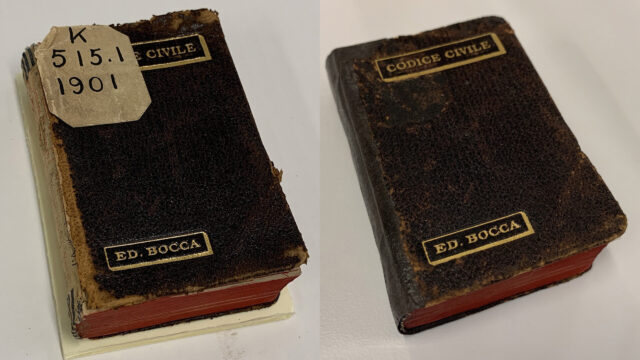
As a museum, preserving items in our collection is one of the National Museum of American Diplomacy’s (NMAD) most important priorities. Museums work to ensure that their collections are available for current and future generations to learn from and enjoy.
NMAD’s collection holds well over 1,000 gifts given to secretaries of state and other diplomats. The oldest of these gifts is a copy of Codice Civile del Regno D’Italia or, translated into English, Civil Code of the Kingdom of Italy. It was printed in 1901 by Fratella Bocca Editori, an Italian publishing house.
The book was added to NMAD’s collection in 2011 after being transferred from the Department of State’s Ralph Bunche Library. In early 2023, a contracted museum conservator repaired and stabilized the decaying leather cover and reattached several pages that had fallen out.
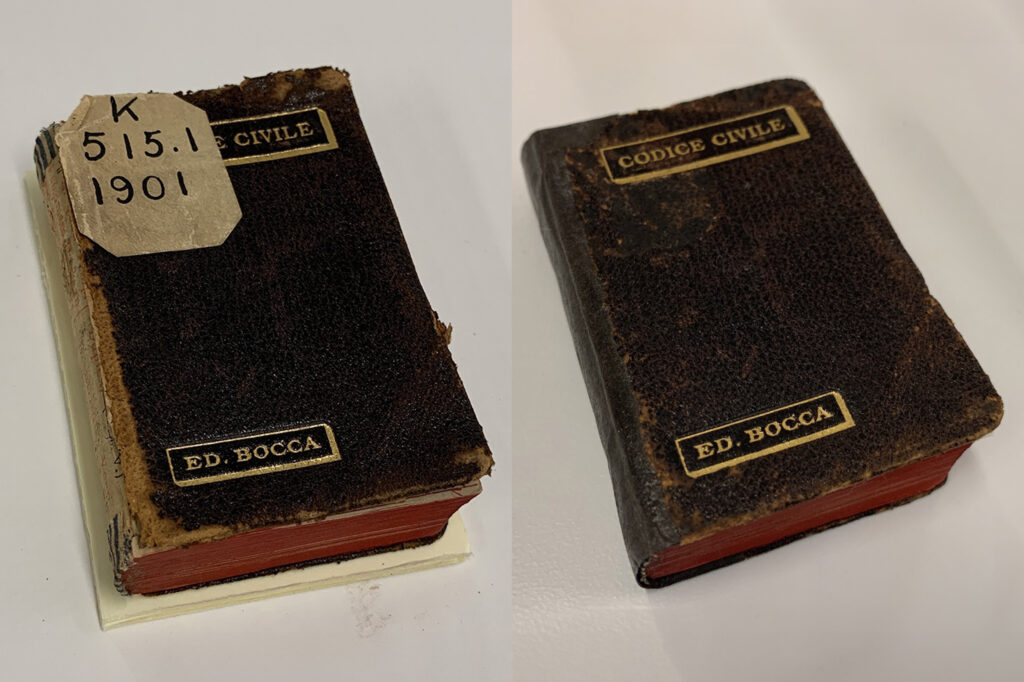
The pocket-sized publication, which is also among the smallest items in our collection, has a short handwritten inscription on its first page: “To the Hon. John Hay with cordial regards & high esteem of D Noble Rowan”. Given the book’s print date of 1901, the inscription indicates it was a gift to John Hay, the U.S. secretary of state from 1898 to 1905.
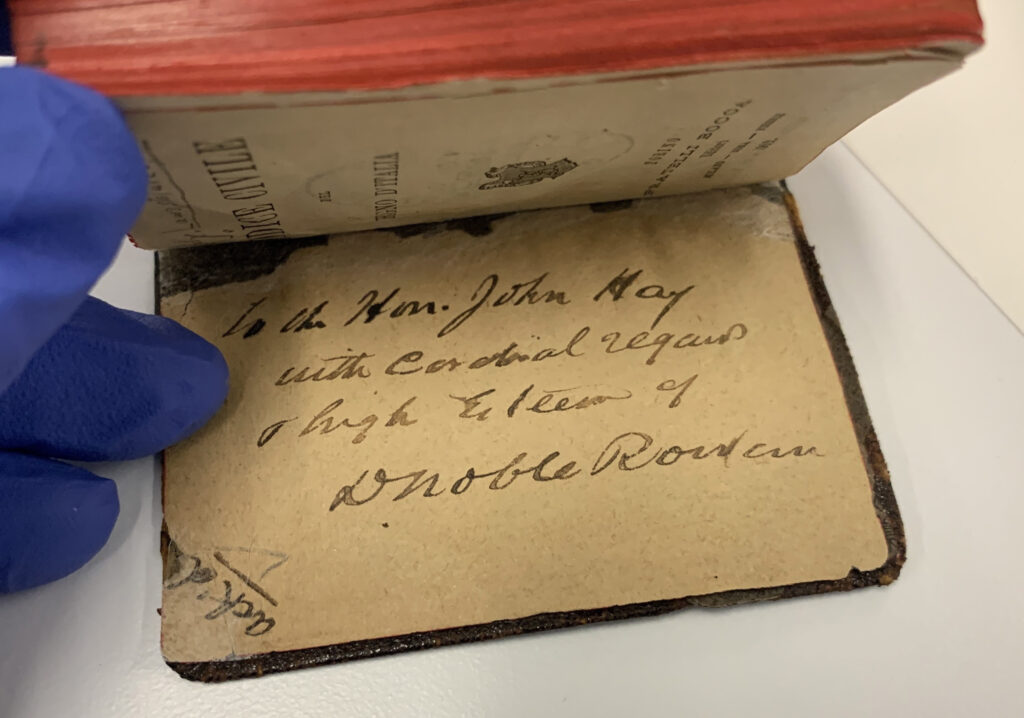
After acquiring this book, NMAD was left with questions that took some research to uncover. Most importantly, who was “D Noble Rowan?” And why would he give a copy of an Italian civil code book to John Hay?
David Noble Rowan was born into a family with a long history in the United States. His great-great-grandfather, John Rowan, served in the first New York State Legislature, 1777-1778. Another one of his ancestors, Thomas Armstrong, served as a Major during the American Revolution.
Rowan, who often abbreviated his first name (“D.”), was a lawyer who practiced in New York and was identified in his obituary as a “prominent member of the New York Bar [association].” His cousin and his law partner, Robert G. Ingersoll, was a prominent figure in late 19th century America known as “the Great Agnostic” for his views on religion and the Bible.
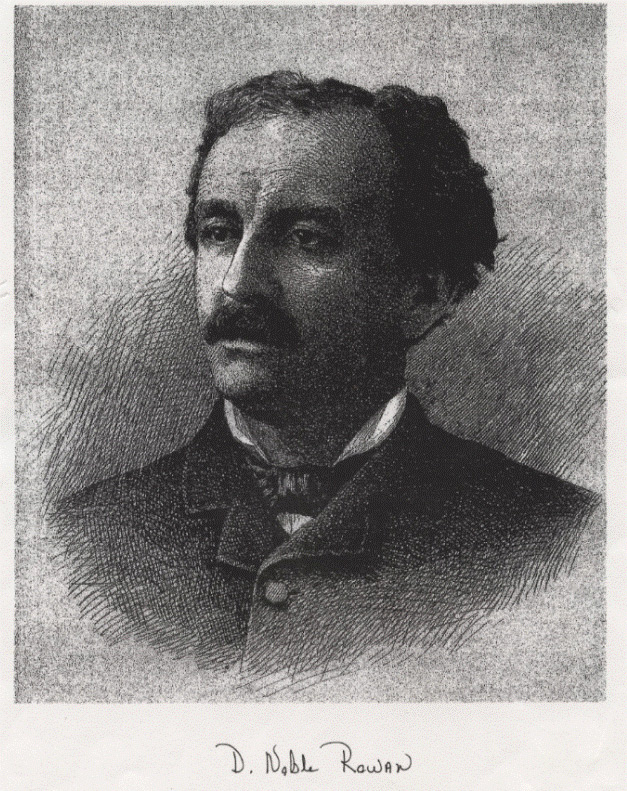
Robert Ingersoll was also very active in Republican Party politics and was known as one of the great public speakers of his time. Speeches were not only a tool by politicians during this time period but were also a popular form of entertainment for the public.
Rowan was well-connected enough to be acquainted with Theodore Roosevelt. In October 1901, shortly after Roosevelt became president of the United States, Rowan sent him a letter that made it clear they knew each other—and had a mutual friend, Albert Shaw, who was a close personal advisor of Roosevelt’s.
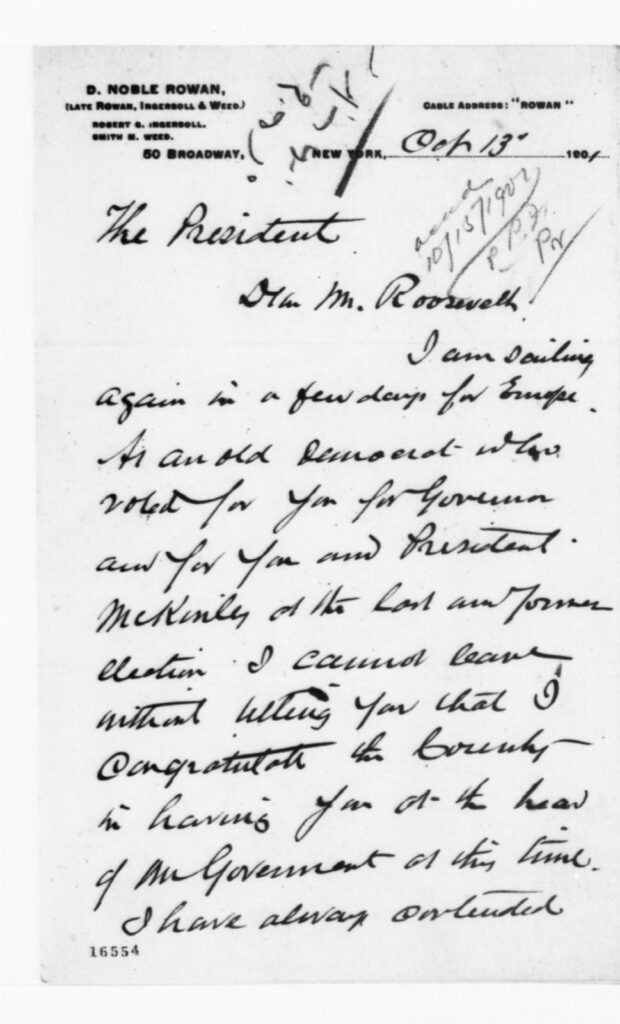
“I congratulate the Country [for] having you at the head of our Government at this time,” Rowan wrote in the opening paragraph.
Referring to Roosevelt and the power behind his requests as president, Rowan teased that he ruined his dinner plans: “The President’s ‘command’ of our mutual friend Dr. Albert Shaw prevented my having him to dine with us at Irvington.”
Like many older books, NMAD’s copy of the Codice Civile del Regno D’Italia had decayed over time. The leather on its outer cover became dry and brittle, leading to the detachment of the front cover—and first few pages—along the crease where the cover meets the spine. The outside of the spine itself was missing altogether and the detached pages were crumbling.
To examine and repair this damage, NMAD contacted a museum conservator with special training and experience working on books and paper. Using their training and skills, they repaired the obvious damage and helped prevent further deterioration of the book.
A new cover for the spine was fashioned out of Japanese tissue, toned to closely match the original leather. The detached pages were reattached using wheat starch paste and Japanese tissue. The rest of the leather cover, which was deteriorating, was stabilized by coating it with a special chemical solution.
Museum conservators use methods of repair that are sympathetic to the original material, but also obviously not original, and are able to be undone by future conservators who work on the item. The goal is to not obscure or damage what is still original, and not try to “cover up” damage in a way that impacts its authenticity.
There is unfortunately no known documentation around the circumstances of Rowan gifting this book to Secretary Hay. Without documentation, we can only speculate based on what we do know.
John Hay and David Noble Rowan were both part of the wealthy, politically-connected social class in late 19th and early 20th century America. Both had lived in New York. Rowan’s family and professional ties to his well-known cousin Robert G. Ingersoll likely helped elevate his profile and make connections to people like Theodore Roosevelt and John Hay.
In Rowan’s 1901 letter to Theodore Roosevelt, he wrote, “I am sailing again to Europe,” revealing he traveled there more than once, if not regularly. Perhaps while in Italy on one of those trips, he stumbled across this Italian legal volume and thought that Roosevelt’s Secretary of State might be interested in taking a look at it. Secretary Hay himself was a lawyer by training and had spent time serving in diplomatic posts in Europe years prior to becoming Secretary of State.
The Italian legal system, unlike the American and English legal systems’ common law tradition, is based on a civil law tradition. Civil law legal systems rely on comprehensive written compilations of rules and statutes. This might make a book like the Codice Civile, or Civil Code, a fascinating peek at another country’s legal system for a diplomat and lawyer like John Hay—and therefore a worthy souvenir for Rowan to give him as a gift.
Thanks to NMAD’s 2022-2023 Virtual Student Federal Service cataloging intern, Jill Johnson, for her research on David Noble Rowan.